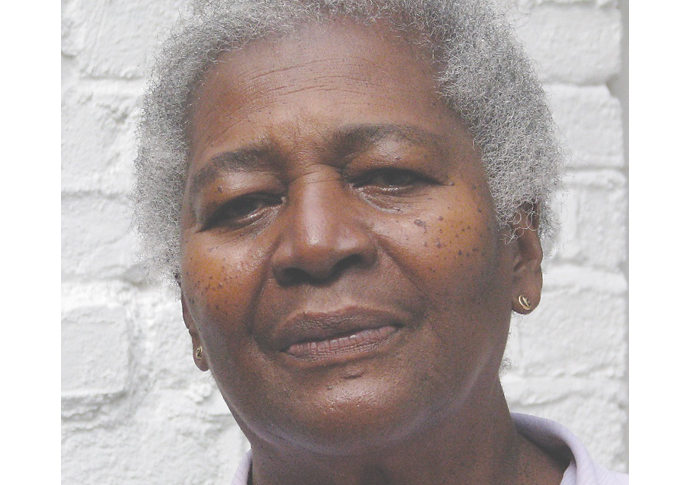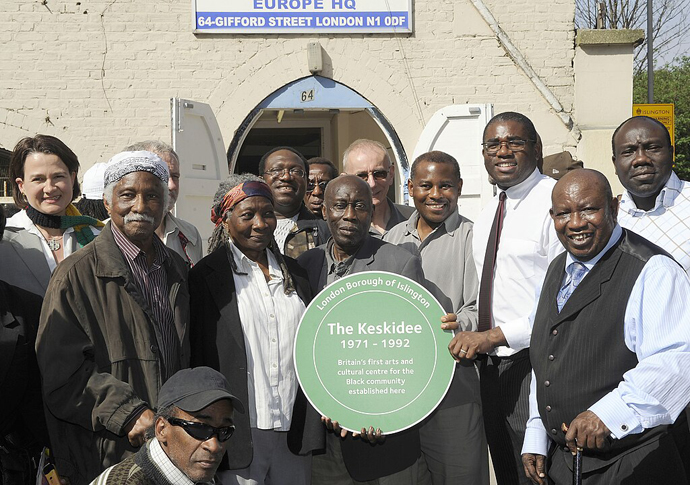Spirited Norma brought The Keskidee to life
Activist helped turn a derelict Victorian church hall into Britain’s first black arts and cultural centre
Friday, 31st January 2025 — By Angela Cobbinah

Norma Ashe-Watt
UNTIL her death earlier this month at the age of 93, Norma Ashe-Watt was the last surviving founding member of the Keskidee Centre, which for 20 years burned brightly as a community and artistic hotspot in Islington and beyond.
Alongside Oscar Abrams and other activists, she helped turn a derelict Victorian church hall in Gifford Street into Britain’s first black arts and cultural centre, which Bob Marley famously used as the setting for the video of his song Is This Love?
Very much the unsung hero, she devoted herself to Keskidee for almost 20 years, successfully steering it through its early years while working full time as a high-ranking official for British Rail and bringing up her son, Gene, alone.
A forthright spirit, years earlier, following a shock encounter with an 11-year-old boy who could not read or write, Norma started a supplementary school in Caledonian Road as a pioneer member of the Islington branch of the Campaign Against Racial Discrimination (Card).
“My mother enjoyed a rich and active life and had a great sense of achievement over her role in setting up the Keskidee Centre and Card,” said Gene.
“She was a resilient woman who refused to be told that she couldn’t do this or that. The fact that as a black woman she also managed to break through the glass ceiling to get a senior management position at British Rail, at a time of great challenges, is testament to that.”
Norma was born in San Fernando, Trinidad, in 1931 as one of six children and came to the UK aged 29 to join her elder brother. Having worked as an accounts assistant, she took a job with British Rail, first at Paddington Station, then St Pancras, where she rose through the ranks to become an accounts manager for British Transport Hotels, BR’s hotel and catering division.

A plaque for The Keskidee Centre in 2011
Settling in Hemmingford Road Barnsbury, she quickly became aware of the blatant racial discrimination around her. “Although I was in a privileged position, I could see what was happening,” she told me from her Canonbury home in 2011. “There was a landlord who rented slum accommodation to only black and Irish people, black and Asian youngsters were falling through the net at school and facing police brutality on the streets, and they couldn’t get work.
“We just had to do something, “
She and Oscar Abrams were among those who set up Islington Card, which used the house she shared with friends as its base, setting another room aside as emergency accommodation for youngsters.
Card’s work expanded to the point where it needed much bigger premises and following a fundraising drive to buy the Gifford Street building, the Keskidee Centre opened in 1971, quickly transforming the lives of local youngsters with its huge range of activities.
But for Norma the dream later turned sour when the community work was sidelined to make way for the growth of the theatre and she resigned as a trustee a few years before the centre’s closure in 1991 amid crushing debts.
After taking early retirement from British Rail and marrying the love of her life, Louis Watt, headteacher of Tollington Park Secondary School, Norma worked part time and volunteered for a number of organisations, including her place of worship, Southwark Cathedral, where she helped out with administration.
In 2018, I interviewed her for a publication commemorating the 150th anniversary of St Pancras Station at the St Pancras Renaissance Hotel, the site of her former offices that had started life as a flagship railway hotel, where she cheerfully recalled the faded grandeur, the rumoured ghosts and, above all, the camaraderie.
“It was a very special place and I feel privileged to have worked there,” she said.
Norma died in Homerton Hospital on January 11 after a brief illness. She is survived by son Gene, stepsons Tom and David Watt, three grandchildren and three great-grandchildren.
Her funeral is at Southwark Cathedral on on February 14 at 12pm.